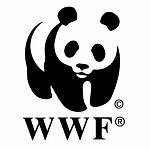 Image by ponChiang via FlickrBy Celeste Maxine Yates
Image by ponChiang via FlickrBy Celeste Maxine YatesClimate change is a natural process of the earth, any mammoth or dinosaur would be able to tell you that, however the rate at which it is currently happening is unnatural.
If you were to think of a process your body goes through when a mosquito bites you; you get an itchy-bite, for a few days have a small red bump and then eventually it goes away. This is a natural process if it was left alone. But we don't leave things alone; in fact humans have a reputation of development, change, growth and get involved in things when perhaps sometimes things should just be left alone. So we itch, we scratch, we infect. The itchy-bite turns an angry red and develops into something a lot more severe than it should have been.
The year 2010 is the International Year of Biodiversity, the year that new species continue to be found, but there are more tigers in captivity than there are in the wild. Here in Africa our trademark beast, king of the jungle, the lion is now an endangered species, with experts predicting its extinction in 20 years. These are events happening in our life-time.
According to the Living Planet report in 2007 alone man-kind used 2 planets worth of resources. We already over-shoot the biocapacity of our planet by 50% in 2007 and the carbon footprint has increased by 11 fold since 1961. 71 countries are experiencing stress on blue water sources and here in South Africa we are already predicting water-shortage issues and some rural and small towns are already experiencing them.
As per the ripple effect, biodiversity loss has an impact on ecosystems, causing damage, degrading and eventually leading to a complete collapse. Threats of habitat loss, alteration and fragmentation, over-exploitation of wild species populations, pollution, climate change and invasive species in turn destroy the services that ecosystems give humans for free; regulating services of natural processes, such as water filtration, waste decomposition, climate regulation and crop pollination. Services such as support for regulation of basic ecological functions and processes for example nutrient cycling, photosynthesis and soil formation.
"Crucially, the dependency of human society on ecosystem services makes the loss of these services a serious threat to the future well-being and development of all people, all around the world" - Living Planet Report; 2010.
Globally there has been a 30% decline in biodiversity. A few examples of individual species include the blue-fin tuna, a fish made famous not only for tuna salad and pasta but by the recent threat of its breeding ground caused by the BP Gulf oil spill earlier this year, has decreased in population by 5.8%. Another example is the leatherback turtle, another species affected by the BP Gulf oil spill, which has declined by 20.5%.
In the report's biogeographical realms, South Africa is part of "Afrotropical" which shows signs of recovery since the 1990's where the Living Planet Index was at minus 55%. The statistics differ for each country as in America and Arab Emirates need 4.5 planets to keep up with carbon emissions and consumption used. In India they need less then 50% of a planet.
In an attempt to find 'greener' fuel by using bio-fuel, palm oil crops have increased by 8 fold over 20 years, converting 7.8 ha by 2010. This land conversion included forests on the islands of Borneo and Sumatra, the home of the Orang-utan. Their population has decreased by 10-fold in two species populations as a result of the deforestation and habitat degradation.
However the report does say that all is not lost. The minimum criteria for sustainability based on available biocapacity of the planet and the human development index "indicates that it is in fact possible for countries to meet these criteria, although major challenges remain for all countries to meet them."
Minimalist architecture moto "Less is More" approach is needed, not only in architecture and art but from the individual, to nations, to the world. The balance needs to change us getting everything and nature nothing, to nature getting more, more in protected areas, more in conservation, more in investment to recover the damage that has been created over the years and us to getting less and rather using the resources we have already captured.
Policies need to be put into place, renewable energy needs to be improved and implemented and sustainable developments in sectors such as agriculture, mining and fisheries need to grow.
Humans might 'itch, scratch and infect' but we also have the ability to learn from past events and use our skills to create ointments to heal.
Celeste writes for South African biodiversity, a media company focusing on conservation and the environment.
Article Source: http://EzineArticles.com/?expert=Celeste_Maxine_Yates
http://EzineArticles.com/?Living-Planet-Report-by-WWF-on-Biodiversity&id=5431620

No comments:
Post a Comment